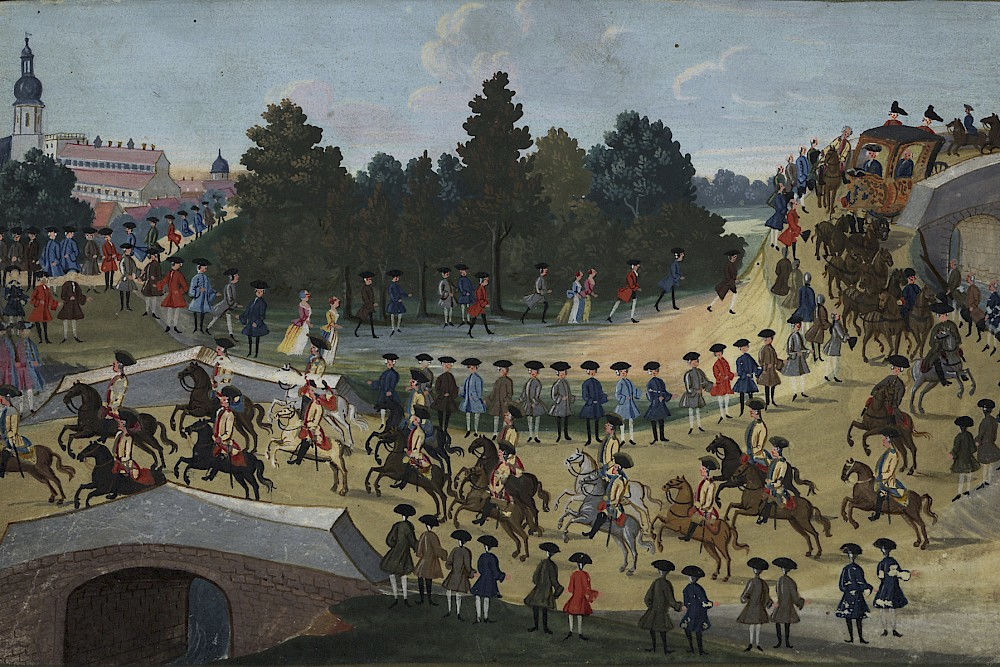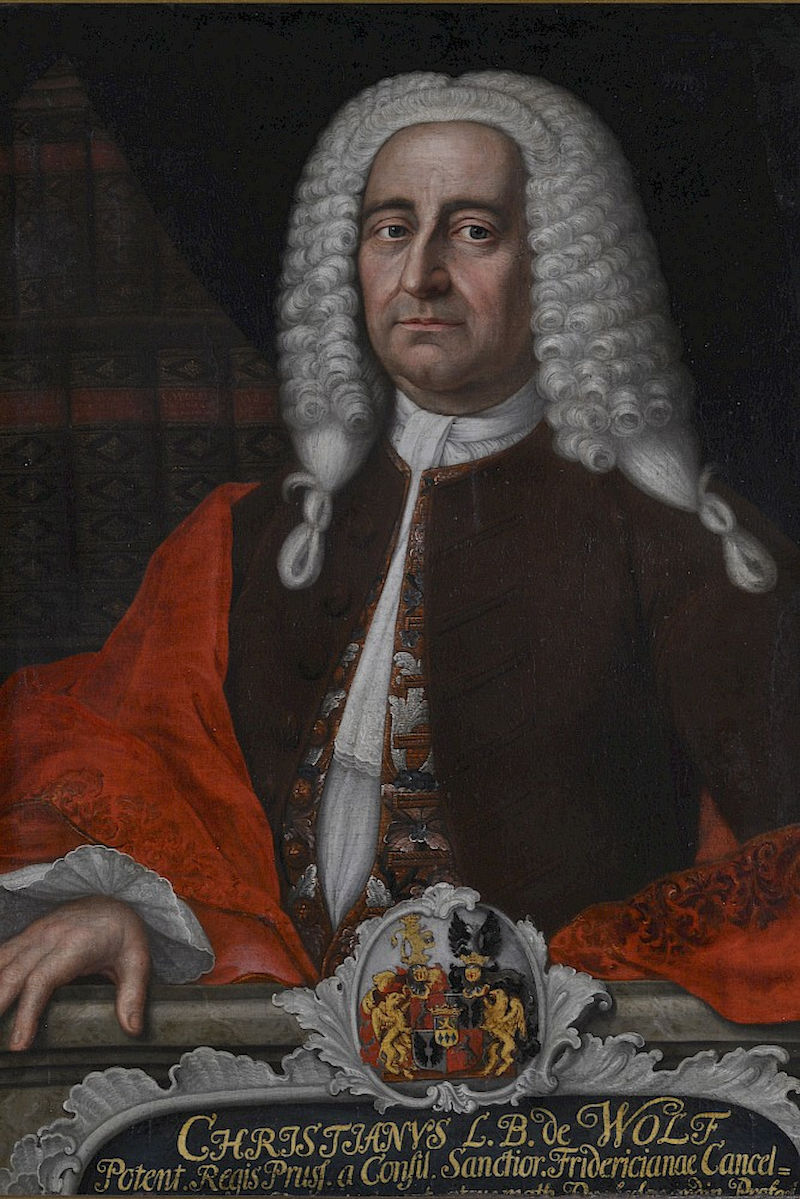Big Names: Christian Wolff

It was around Christmas in 1706 when Christian Wolff came to the City of Halle to take up a professorship at the university there. He came from the direction of Leipzig, so must have first arrived at the Galgtor gate, in today’s Leipziger Strasse. It appears that his first impression of the city on the Saale was not very positive: after all, the local place of execution was at the Galgtor gate. Furthermore, the area was richly lined with heaps of manure and garbage in the absence of a sewage system or refuse collection. And, as if this visual imposition were not enough of an unpleasant welcome, it was rounded off by an atmosphere of stenches and smoke gases.
This is only one of many scenes described in detail in a biography that has recently been published by Professor Hans-Joachim Kertscher, an emeritus professor of German studies. A book that was long overdue, as the last major complete biography of the great polymath Christian Wolff appeared in 1841. An impressive quote from the educationalist Karl Bayer from Erlangen has been used as the title for the publication that has now been published by the Mitteldeutscher Verlag: “Er brachte Licht and Ordnung in die Welt” (“He brought light and order into the world”) is what Bayer wrote about Wolff in 1838. A statement that is symptomatic of the relevance and appeal of the philosopher of the Enlightenment, who was born in Breslau on 24th January 1679, without whom – or so the experts believe – other philosophers of the Enlightenment, such as the towering figure of Immanuel Kant, would hardly have been possible.
Wolff’s eloquent acumen soon ensured that he kept causing offence in the City of Halle. Events came to a head over the years and culminated in a conflict that had an effect far beyond the borders of the city on the Saale at that time. In 1723, this finally escalated and led to a despotic act by the Prussian King Frederick William I that attracted attention throughout Europe: under pain of death, Wolff was forced to leave Prussia (and therefore the City of Halle, which was in Prussia) within 48 hours. He finally fled to Marburg in Hesse.
This ended, at least temporarily, an era that had made the University of Halle hugely popular. It was only the king’s successor, Frederick II of Prussia, also known as Old Fritz, who summoned the scholar back to the City of Halle in 1740. This second arrival in the city on the Saale was a public event. Wolff arrived on St. Nicholas’ Day, accompanied by his family, amidst numerous marks of favour from students, who flanked him on horseback or in carriages. His return was worth a mention in the “Wöchentliche Hallische Anzeigen” and a commemorative coin was minted especially for this event.
Three years later, Wolff was appointed chancellor of the University of Halle and he also had a beneficial effect again in other respects. This time, he remained at the university until his death on 9th April 1754. He was originally a professor of mathematics, but he also turned his attention to physics. He composed texts on logic and on natural justice, on metaphysics and ethics. He often did this in German, which was a new phenomenon at that time. He had an influence on many other scholars, and it was not just he himself, but also many of his students who had a beneficial effect on the age of the Enlightenment.
All this is well-known. For, although Wolff’s work has previously only partly been made accessible, it has frequently been an object of academic study. In fact, new aspects of his work are still coming to light today, around 300 years after Wolff’s period. Only recently, Dr Stefan Borchers, a science historian from Berlin, discovered that Wolff also did work in another aspect of the Enlightenment, specifically in the area of sexual enlightenment.
The enjoyment of sexual intercourse was apparently not a one-way street for Wolff. In his lectures, the polymath taught his students that the sexual act “works better if both the man and the woman enjoy it”. This insight, which was both candid and progressive for the time, can be read in a lecture transcript from the academic year 1717/18. A booklet that spent a largely unnoticed existence in the University and State Library Saxony-Anhalt for a long time. Borchers, who did his doctorate in teachings about procreation in the 18th century, came across it when he was teaching at the MLU in 2010 as a visiting professor.
“Until then, it was unknown that Wolff was also active in the field of sexual enlightenment,” he says. “And especially how frankly Wolff expressed himself in a talk on issues of human sexuality.” Borchers’ find also proves that working on the philosophy of the Enlightenment is anything but boring, even today.
Big Names
The University’s history connects it to many well-known figures or big ideas. Not everyone, however, is fully clued up on the whys and wherefores of these connections. But that’s about to change. The section, “Big Names” is a reminder of the outstanding researchers and academics who have links to the City of Halle.
Zum Buch: Hans-Joachim Kertscher: "Er brachte Licht und Ordnung in die Welt", Christian Wolff – eine Biographie, Halle 2018, 312 Seiten, 25,00 Euro, ISBN 978-3-96311-096-2

